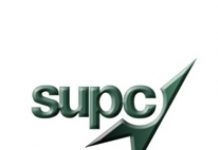Framework agreements are designed to maximise third party expenditure within the higher education sector. These case studies show how frameworks are being used in higher education to drive efficiency and ensure maximum value for money.
The six higher education (HE) purchasing consortia in England work together as Procurement England Ltd – a vehicle to advance collaborative procurement within the HE sector.
Part of this work is to manage a series of collaborative framework agreements, which are designed to maximise third party expenditure within the higher education sector.
The frameworks cover a wide range of category areas – including estates, furniture, travel, catering and office supplies.
What is a framework?
A framework sets out the overarching terms and conditions – such as maximum pricing or minimum service levels – that users can expect to receive after they have entered into their own, optional, contracts with approved suppliers on the frameworks.
These frameworks are tailored to the sector’s needs and designed to save consortia members time, money and resources.
They further maximise efficiencies because their use means universities do not need to spend their time doing a full EU tender. Frameworks are also designed to be compliant with EU procurement law, minimising the risk of litigation.
Case studies – collaborative procurement in action
Below are a range of case studies demonstrating the use of these frameworks delivering efficiencies for the sector:
1. Developing framework agreements collectively
When the University of Greenwich’s waste management contract was up for renewal, it participated on a London Universities Purchasing Consortium working group to develop a tendering framework for sustainable waste management that met its needs, rather than running its own tender.
2. Negotiating “cashback” deals with suppliers
North Eastern Universities Purchasing Consortium (NEUPC) members are benefiting from additional cash savings through a pioneering arrangement with suppliers in which they pay member institutions’ money back. NEUPC was instrumental in bringing the Managed Procurement Partnership concept to the Office Supplies Framework whereby buyers receive a share of mutual efficiency savings when adopting efficient buying behaviours.
3. Putting members at the heart of the collaborative procurement process
The NEUPC furniture framework demonstrates that putting members at the heart of collaborative procurement design ensures frameworks can be used to deliver high-quality projects for university estates. This is whilst saving members money, time and resources to use them.
4. Saving money through streamlining procurement processes
The University of York achieved significant resource and cash savings through use of the Portable Appliance Testing framework, and a significantly more streamlined service as a result. The move followed an NEUPC account management member meeting in which senior procurement manager Mark Hayter worked with the university to carry out a review of contract spend, usage and opportunities to create further efficiencies.
5. Joint Consortia Book agreement allows Coventry University to reap excellent savings
The procurement team at Coventry University used the Southern Universities Purchasing Consortium-led Joint Consortia book agreement to deliver 20,000 text books to 3000 undergraduates under the Promises campaign. The agreement allowed Coventry to reap excellent savings, while also ensuring the project was delivered with a trusted and engaged supplier, keeping university students, staff and other key stakeholders happy.








